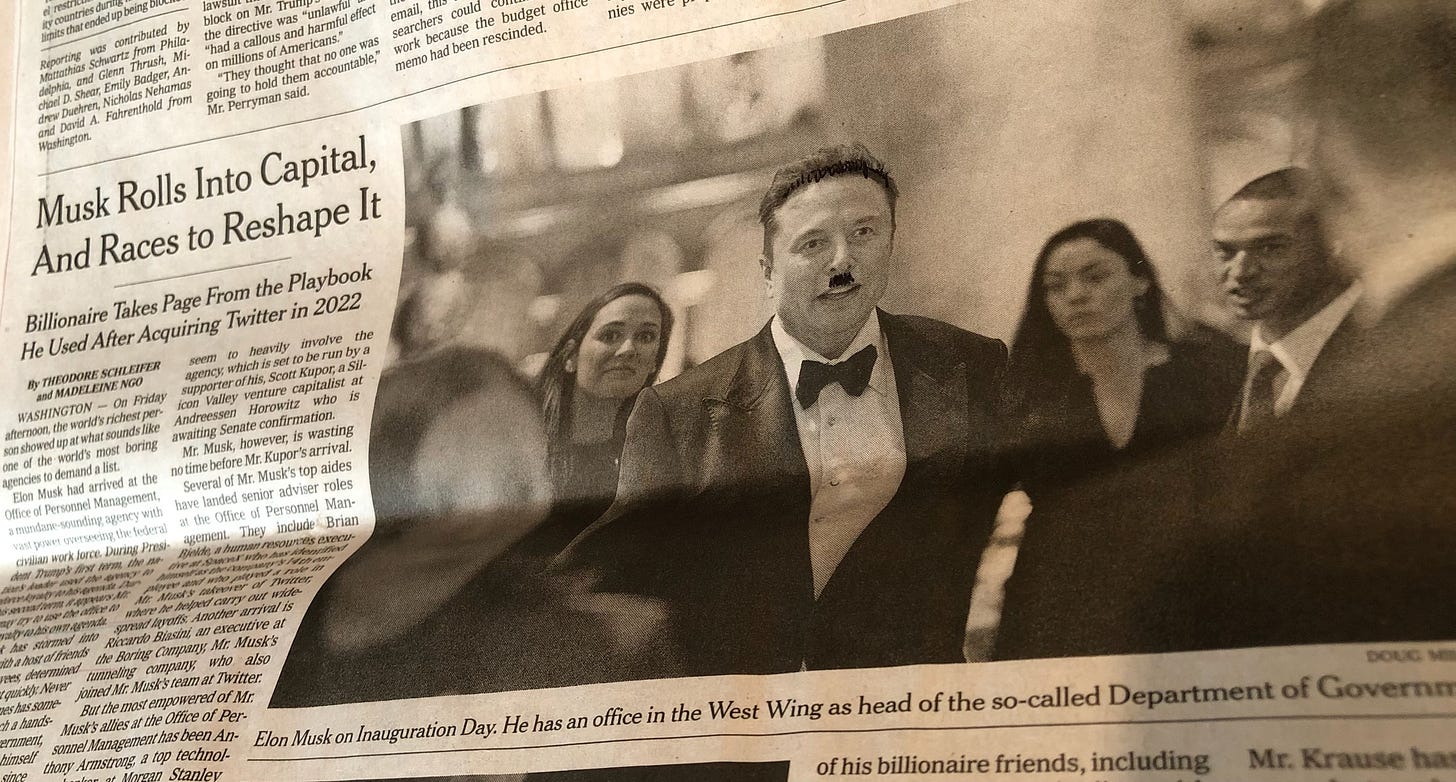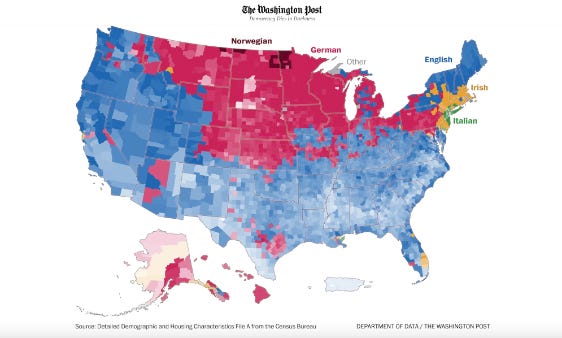Where I'm Calling From
A place of bafflement, anger, hope
To My Readers:
A recent Sunday New York Times took note of a book by photographer Daniel Weiss that documents the era of the pay phone in New York City. It’s hard for me to believe this, but apparently the city removed the last public pay phone in 2022. It’s been a long time since I’ve seen one that’s in service, but I often walk by a disabled phone right near our post office here in Northampton (see above). I sometimes feel like punching a number in on the buttons, but there’s no longer a receiver to give me a dial tone.
This week I happened to find myself at the bowling alley and realized I’d left my cellphone at home, which happens to me often enough. It made me recall the old days at Lanes and Games when there was a pay phone in a booth. You could close the bifold door to muffle the noise of the bowling alley. I used it regularly, usually to report that I’d be home later than planned. But a few years before L&G closed down in 2017 the phone was taken out of the booth and the owners used it to house the stereophonic equipment that gave us the annoying and tired pop music that is common in most bowling alleys.
Well, if you want to know more about the Weiss book Pay Phone, you can check out the site of his Los Angeles publisher, which is called Smog Press.
I gather that when ol’ Joe Biden signed off with a warning about the oligarchs taking over the country (a little late for that, jack!) there was a big spike in google searches for the definition of oligarchs and oligarchy. I don’t know about you, but I burn with a white-hot fury when I see the insolent pasty face of Elon M**k in the newspaper. The other ones, too: Peter Thiel, Marc Andreessen, Mark Zuckerberg, Jeff Bezos—all of them sucking up to Trump.
It was amusing, though, to see Trump-lover Steve Bannon directing his fire toward the billionaires from South Africa, who like to think of themselves as the “good” kind of immigrant. Early this month he told the Italian newspaper Corriere della Sera that “I will get Elon Musk kicked out by the time [Donald Trump is] inaugurated.” Bannon was quoted saying:
“Peter Thiel, David Sachs, Elon Musk, are all white South Africans. He should go back to South Africa. Why do we have South Africans, the most racist people on earth, white South Africans, we have them making any comments at all on what goes on in the United States?”
Obviously, Bannon is a person who understands the conflict between Trump trying to pose as some kind of populist while his administration is run by the wealthiest of the one percent. Most other Republicans seem perfectly OK with it, though.
Anxiety is real, but so is hope. My hope is that there will someday be an uprising against the takeover of the U.S. government by the billionaires, who believe in government of the wealthy, by the wealthy, for the wealthy. The hatred many of us have for this kind of oligarchy is sometimes thought to spring from envy of the rich. I don’t envy Musk or Bezos—I wouldn’t want to have their ludicrous lives. But, to me, the notion that any human being should be wealthy beyond measure—and that they so casually assume their wealth should be translated into political power—should be deeply offensive to any citizen who believes democracy is better than plutocracy.
What does it mean to be “wealthy beyond measure”? It means we can hardly even comprehend how obscenely rich these people are. For those who haven’t seen this mind-blowing attempt to convey what a multi-billionaire really is, I urge you to take time with this experiment in visual storytelling:
https://mkorostoff.github.io/1-pixel-wealth/
It’s a little outdated, because now Bezos and Musk are worth way more than they were in 2020 when this was developed. At the time, AdAge magazine took note of what the creator had done:
In case you missed it, web developer Matt Korostoff has created an astonishing visualization of Jeff Bezos’ wealth that’s been going viral on Twitter and other social platforms this week. Korostoff figured out a way to make something rather incomprehensible—the real scale of billions and billions of dollars—exhaustingly comprehensible through the physical activity of scrolling. Spoiler: You’re going to be scrolling for quite awhile.
In a better America, every teacher of high school social studies and university political science would present this to their students. Would it not awaken some sense of justice? fairness? equality? Would it spark outrage? I think it would.
I sometimes think those of us who dabble in words would get further if we learned techniques in visual storytelling. Since there is so much talk about immigration these days, I found myself staring at this map, presented recently by the Washington Post:
The accompanying story reveals that America’s largest ethnic group is . . . Germans. Ugh-oh.
When I was a kid, our aunt Kay lived with us. She used to sit on her couch in the part of the house we called “the back landing.” She was usually busy with knitting or needlepoint and she would play records in the evening. That’s where I first heard the music of Muddy Waters, Leadbelly, Hank Williams, Johnny Cash, Josh White, and (later) Willie Nelson. There was in her record collection a mixture of blues and country that I eventually decided was a result of her growing up in Southern Indiana and being able to get radio stations from Memphis at night.
One record by Josh White was especially memorable. It was called “Chain Gang Songs” and showed a photo of a prisoner’s legs with stripes on his pants and his ankles locked. The voice of the singer was the very definition of mellifluous. He wasn’t as famous as a lot of other blues and folk singers, but what a storied life he led. The twists and turns are detailed here on an Alan Lomax website. He died in 1969 at age 55.
His son, Josh White Jr., was on stage with him from an early age and made a good living touring in recent decades, singing many of his father’s songs. Several years ago, Alice and I heard Josh White Jr. sing at Sanders Theater at Harvard, just as he had at the age of 16 alongside his father in 1957, to some disapproval from the Harvard Crimson. I couldn’t believe how much he sounded like his father, especially in his “Piedmont Style” of guitar playing. You can hear it on this version of “Southern Exposure Blues.” I remember writing to my aunt Kay, telling her about that excellent concert.
Now Josh White Jr. has died, at 84. The Times published an obituary earlier this month. It notes that some critics “scrutinized his performances and interviews for evidence of the son struggling under paternal weight.” “I still sing his songs because it’s my show and I can sing what I want,” he told The Montreal Gazette in 1985. “I play them for those who remember my father, and for those who never had the chance to hear his music.”
The obit reports that his manager had been urging him to announce his retirement and on a December 27 phone call he agreed, saying “I guess everybody’s got to retire sometime.” He died the next day.







The scrolling exercise! Pretty mind-blowing.
Really liked this one... good to remember hope is real